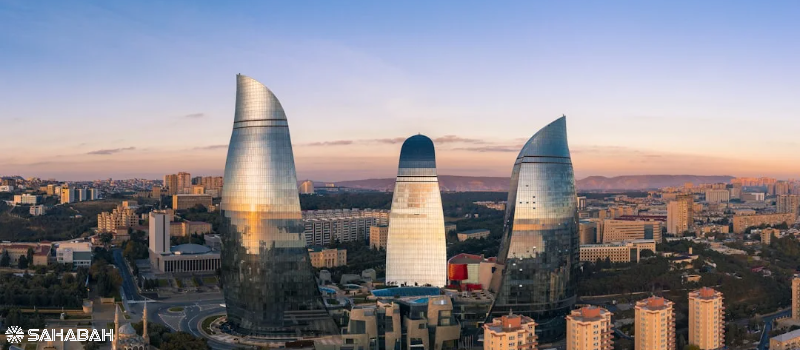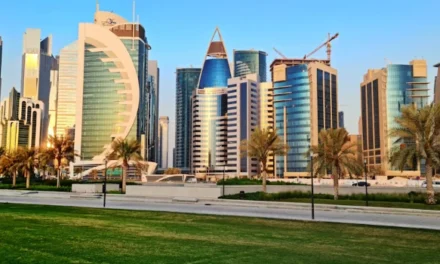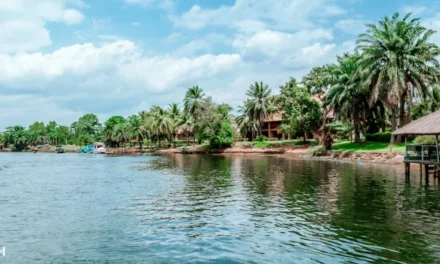Azerbaijan and Israel have maintained close diplomatic relations since the former gained independence from the Soviet Union in 1991. This comprehensive blog post will delve into the nuances of this relationship, examining the historical context, political dynamics, and economic factors that shape Azerbaijan’s support for Israel.
Historical Background: Azerbaijan’s Ties with Israel
Azerbaijan was one of the first Muslim-majority nations to recognize Israel after gaining independence in 1991. This bold move laid the foundation for a strategic partnership between the two countries, driven by shared interests and common challenges in the region.
The establishment of diplomatic relations with Israel in 1992 was a significant milestone for Azerbaijan. It signaled the country’s willingness to forge ties with a nation that had long been viewed with suspicion by many in the Muslim world. This decision was rooted in Azerbaijan’s secular and tolerant approach to religion, as well as its desire to position itself as a bridge between East and West.
Political and Strategic Considerations
Azerbaijan’s support for Israel is underpinned by a complex web of political and strategic considerations. On one hand, Azerbaijan must carefully balance its relations with Israel and its Muslim neighbors, some of whom have expressed concerns about the close ties between Baku and Tel Aviv.
However, Israel remains a crucial strategic ally for Azerbaijan, providing advanced military technology and intelligence cooperation. This partnership has proven invaluable in the context of the Nagorno-Karabakh conflict, where Azerbaijan has sought to counter Armenia’s close ties with Iran.
Moreover, Azerbaijan has played a pivotal role in facilitating improved relations between Israel and Turkey, two key players in the region. This diplomatic maneuvering highlights Azerbaijan’s importance as a strategic partner for Israel in the Caucasus region.
Economic and Energy Cooperation
The economic dimension of the Azerbaijan-Israel relationship cannot be overlooked. Israel has been actively involved in Azerbaijan’s energy sector, participating in oil and gas exploration projects and supporting the development of pipeline infrastructure.
Bilateral trade and investment opportunities have flourished, with both countries recognizing the potential for mutually beneficial economic cooperation. Additionally, there is growing interest in collaborating on renewable energy and green technology initiatives, reflecting the evolving priorities of the global energy landscape.
Cultural and Societal Factors
Beyond political and economic considerations, cultural and societal factors have also contributed to the strong ties between Azerbaijan and Israel. Azerbaijan’s secular and tolerant approach to religion has fostered an environment conducive to interfaith dialogue and cooperation.
The presence of a small but vibrant Jewish community in Azerbaijan further strengthens the cultural bonds between the two nations. Efforts to promote interfaith understanding and combat anti-Semitism have been a priority, with cultural exchanges and people-to-people ties playing a crucial role in fostering mutual understanding.
Regional Dynamics and Geopolitical Implications
Azerbaijan’s support for Israel has significant implications for the broader regional dynamics and geopolitical landscape. As a strategic partner for Israel in the Caucasus region, Azerbaijan’s stance has the potential to influence Israel’s relations with other key players, such as Turkey and Iran.
Furthermore, Azerbaijan’s position on the Israeli-Palestinian conflict and its potential role in mediating between Israel and its Muslim neighbors could have far-reaching consequences for the peace process and regional stability.
Challenges and Criticisms
Despite the strong ties between Azerbaijan and Israel, the relationship has not been without its challenges and criticisms. Some Muslim nations have voiced concerns about Azerbaijan’s close cooperation with Israel, accusing Baku of double standards and human rights violations.
Additionally, there are potential risks and limitations associated with the Azerbaijan-Israel partnership, particularly in the context of the region’s complex geopolitical dynamics and the ever-evolving security landscape.
Future Prospects and Opportunities
Looking ahead, the prospects for deepening cooperation between Azerbaijan and Israel in various sectors, including defense, energy, and technology, remain promising. Azerbaijan’s unique position as a secular Muslim-majority nation with strong ties to both Israel and its Muslim neighbors presents opportunities for diplomatic mediation and bridge-building.
However, the future of this relationship will also be shaped by the challenges and uncertainties that arise in the evolving regional landscape. Navigating these complexities will require deft diplomacy, strategic foresight, and a commitment to mutual understanding and cooperation.
FAQ: Does Azerbaijan support Israel?
Azerbaijan has developed diplomatic and trade relations with Israel over the years, but it maintains a balanced foreign policy approach in the Middle East region.
What is the stance of Azerbaijan on the Gaza War?
Azerbaijan has expressed concern over the humanitarian situation in Gaza but has not taken a direct stance on the conflict.
How do Azerbaijani-Israeli relations impact the region?
The relations between Azerbaijan and Israel have implications for regional dynamics, including Iran’s position in the region and Israel’s relationship with Muslim countries.
What role does Baku play in Azerbaijan-Israel relations?
Baku serves as a key diplomatic hub for Azerbaijan’s interactions with various countries, including Israel.
Does Azerbaijan have an embassy in Israel?
Yes, Azerbaijan has an embassy in Israel, located in Tel Aviv.
How does the Azerbaijani government view Palestine?
The Azerbaijani government supports the idea of a two-state solution for the Israel-Palestine conflict and has maintained diplomatic ties with Palestine.
What is the current status of trade relations between Azerbaijan and Israel?
Azerbaijan and Israel have developed strong trade relations in various sectors, including agriculture, technology, and defense.





